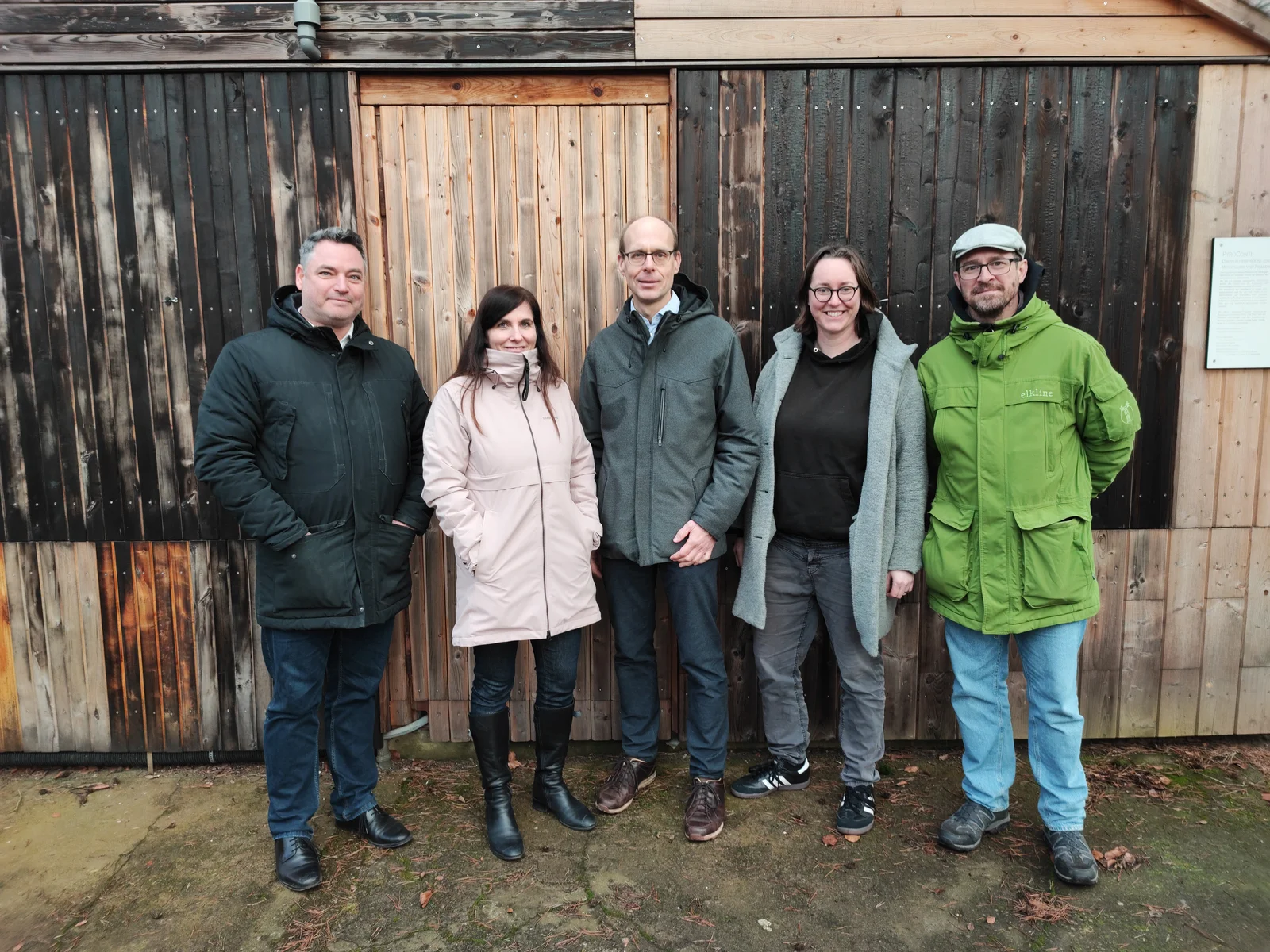StaF-WAVE project launch: HNEE and TH Wildau conduct research into AI-supported prediction of wood ageing processes
Eberswalde/Wildau, 17 February 2025 - Eberswalde University for Sustainable Development (HNEE) and Wildau University of Applied Sciences (TH Wildau) are jointly launching the interdisciplinary research project "Wood Aging Visualisation and Estimation" (WAVE). The aim of this pioneering project is to use artificial intelligence (AI) to predict the ageing processes of wood more precisely. The focus is on the digital modelling of wood ageing and the development of new visualisations for the sustainable use of wood in construction and design.

Focus on wood as a sustainable raw material
Wood is not only an aesthetically pleasing, but also a sustainable building material that contributes to the reduction of greenhouse gases by binding carbon dioxide. The "WAVE" project is investigating how wood ages over time under the influence of radiation intensity and other factors. The aim is to use this knowledge to better understand and predict the colour and structural changes caused by ageing.
A key innovation is the integration of lacquer systems which, in combination with modelled ageing processes, enable modern and sustainable surface technology. Regional wood species such as pine, robinia, oak, beech and maple are a particular focus in order to meet the challenges of climate change.
Technology meets sustainability: digital wood ageing models and XR visualisation
The team led by Alexander Pfriem, Professor of Chemistry and Physics of Wood and Chemical Process Engineering at HNEE, is working closely together to develop extensive laboratory tests. The data collected in the investigations form the basis for machine learning models, which are then created at the TH Wildau under the direction of René Krenz-Baath, Professor of Cyber-Physical Systems. The aim is to enable precise predictions of wood ageing processes and to integrate results into user-friendly, visual representations.
The planned integration of extended reality (XR), which allows ageing processes to be visualised in real time and with a high degree of realism, is particularly exciting. These applications can be used in the areas of building information modelling (BIM) in digitalised construction planning and computer-aided design (CAD). The resulting applications would directly create opportunities to utilise wood resources more efficiently and sustainably in construction and design projects.
A contribution to resource conservation and digitalisation
Another focus of the project is on optimising the AI algorithms used to reduce their energy consumption during training. In this way, the "WAVE" project is making a further contribution to making technological progress more resource-efficient.
Statements from the project managers
"With this project, we are bringing research and practice together to not only better understand wood as a sustainable building material, but also to optimise its use in a digitalised world," explains Prof. Alexander Pfriem from HNEE. Prof. René Krenz-Baath from TH Wildau adds: "By using state-of-the-art technologies such as machine learning and XR visualisation, we are opening up completely new perspectives for the sustainable use of wood in the construction industry."
The project already has a slogan: "Together for a sustainable future in Brandenburg with wood - that's WAVE"
The project is being funded as part of the StaF-Verbundrichtlinie 2023 ("Strengthening technological and application-oriented research in research networks of scientific institutions"). The project runs from 1 February 2025 to 31 August 2027.
The project deals with the dose-dependent colour changes of wood. Machine learning models (ML) are being developed, trained and optimised on the basis of various AI algorithms. The aim is to enable precise predictions and statements about wood ageing processes on the basis of empirical research data sets and to generate valid results.
Funding body: State of Brandenburg, Ministry of Science, Research and Culture of the State of Brandenburg (MWFK)
Duration: 01.02.2025 - 31.08.2027
Funding volume: € 169,984 (HNEE only)
Project consortium:
- HNE Eberswalde, Department of Forest Campus, Department of Chemistry and Physics of Wood with Prof. Dr Alexander Pfriem (Lead) and Claudia Lenz M. Sc.
- TH Wildau, Faculty of Engineering and Natural Sciences with Prof. Dr René Krenz-Bååth, Microsystems Engineering/Systems Integration Research Group
Note on image material
The photos available here may be used for reporting purposes. Please note the copyright notice © HNEE